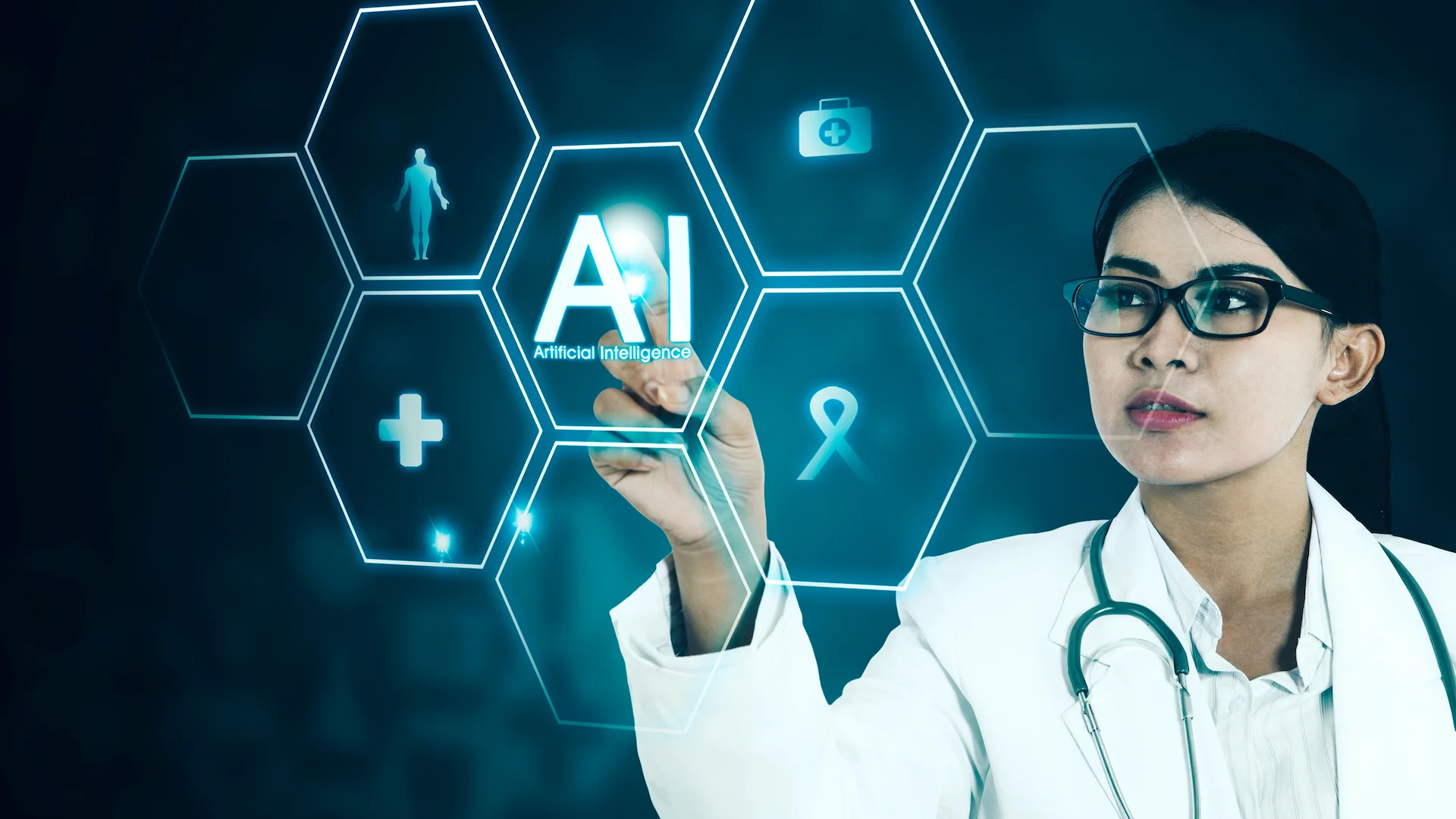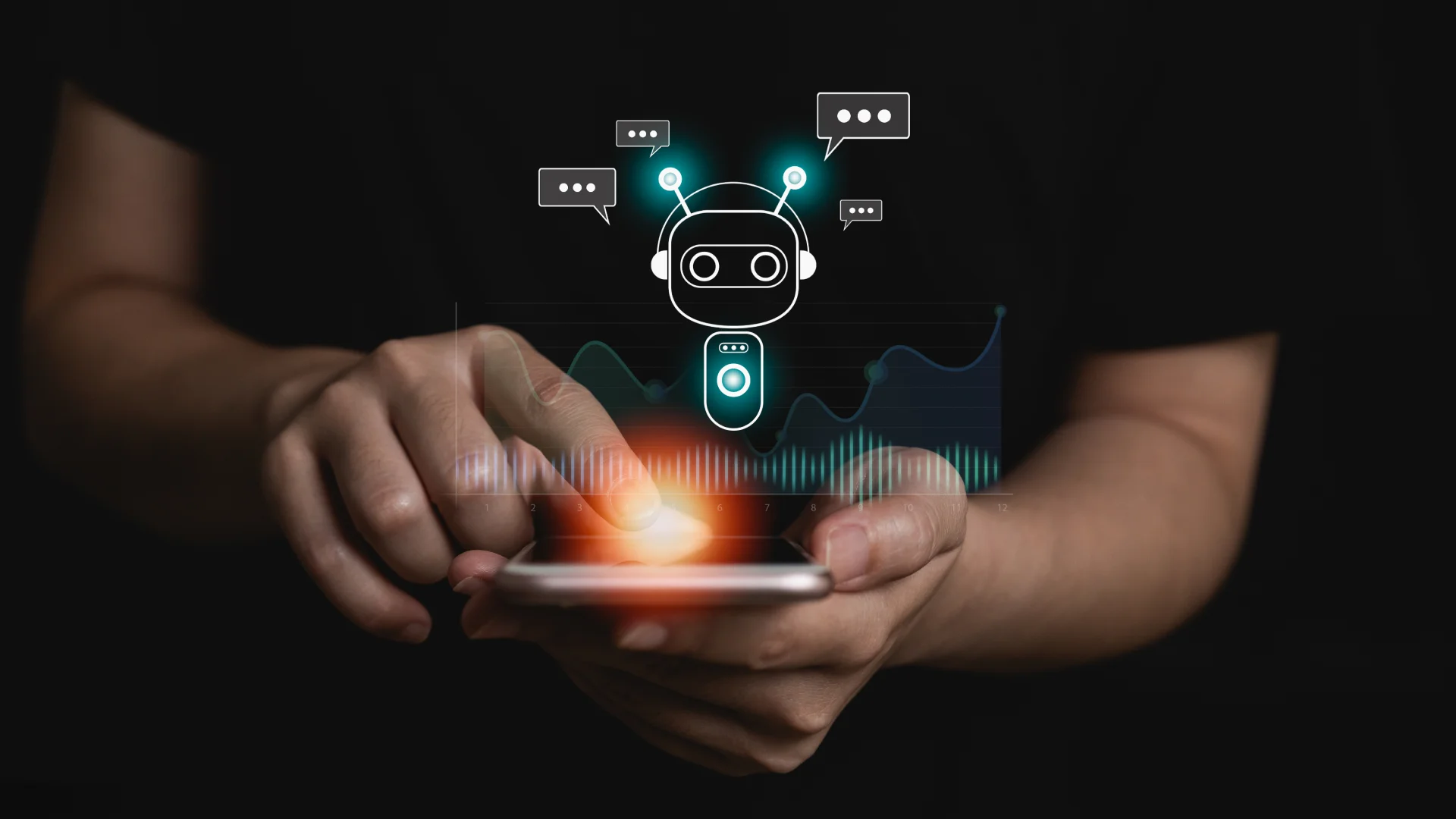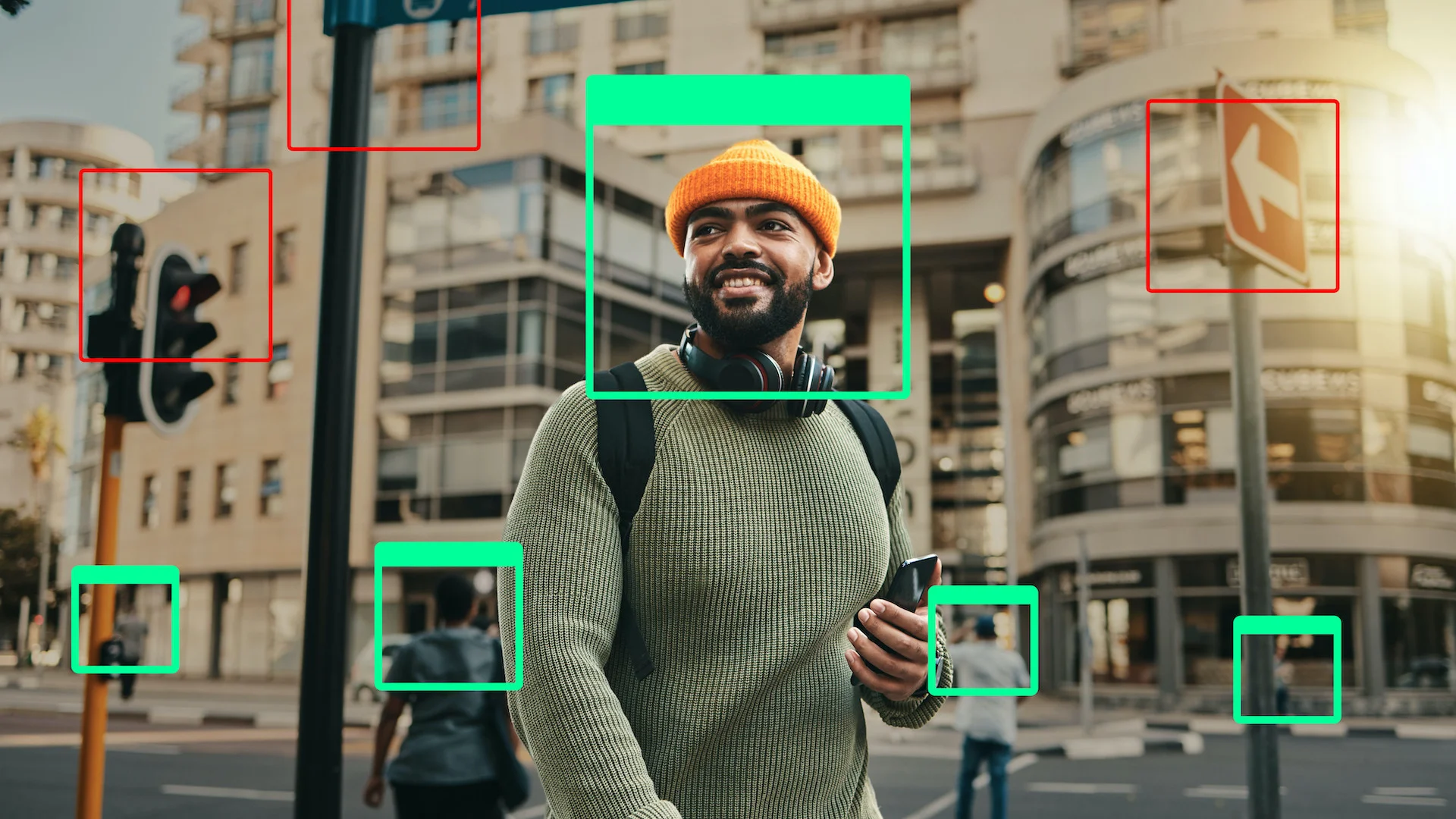How AI Can Be Beneficial to Healthcare Startups?
- AI/ML
- October 4, 2023
If we are talking about intelligence framing the reference of Artificial Intelligence in the healthcare sector, then definitely the sky is the limit. AI in healthcare has been setting benchmarks for itself to grow at a consistent pace. 91.5% of high-scale businesses are Investing in Artificial Intelligence, as using AI has boosted business productivity by 54%.
Taking a look at healthcare startups, AI healthcare startups have boomed and how.
Still, many healthcare startups are unaware of the fact what wonders artificial intelligence can do for their venture. So, that being said, why don’t we talk about the current scenario of AI in healthcare?
We will be covering everything about this concept from scratch; the transformations it has brought, the challenges to implementing AI in healthcare, the benefits it has offered, and other significant stuff. Let’s brew this conversation with a cup of brewed coffee!
What is AI in Healthcare?
We all are aware of the fact AI in healthcare is being embraced relatively, especially AI. Many healthcare startups have claimed to witness major differences after implementing AI solutions. But since we want all the AI healthcare startups to avail artificial intelligence for their next big plan of action, we are helping you learn things from scratch.
AI in healthcare is an umbrella term to present with the application of ML which is the acronym for machine learning algorithms and other cognitive technologies in medicine.
To put it simply, AI is when computers and other machines simulate human cognition, and are eligible of learning, thinking, and deciding stuff or take action. AI in healthcare, then, is the use of machines to examine and act on medical data, often with the perspective of anticipating the outcome.
AI in Healthcare Statistics
Let’s take a look at statistics citing the current status of AI in the healthcare market:
1. Market is projected to reach USD 95.65 Billion by 2028, up from USD 6.60 Billion in 2021, at a compound annual growth rate (CAGR) of 46.1%.
2. Especially the pharmaceutical & biotechnology startups segment is projected to grow at a high-paced CAGR from 2022 to 2028.
3. As per Statista’s report, the global AI digital health market by major segment for selected years between 2015 and 2025. It is estimated that it will reach nearly 190 billion U.S. dollars by 2025.
4. Having seen the transformation AI has welcomed in the healthcare industry, it is projected that AI applications can cut annual US healthcare costs by USD 150 billion in 2026.
5. Segments of AI in healthcare that are expected to make strides between 2022-2028:
- The pharmaceutical & biotechnology Startups
- Natural language processing
- The clinical trials participant identifier
So, these were the key statistics that executed the flourishing period of healthcare startups brought by artificial intelligence.
What Are The Types of AI in Healthcare?
Let’s learn about the types of artificial intelligence here in detail:
1. NLP – Natural Language Processing
Artificial intelligence has been in existence for decades up until now; since then, AI researchers have been focusing on making the exact sense of human language. The concept of natural language processing, i.e., NLP helps with the recognition of speech, text analysis, text translation, and other stuff.
The process is done in two ways which are statistical and semantic NLP. But statistical NLP is being used on a frequent basis as it is based on machine learning and deep learning neural networks, they are pretty precise at language recognition and text identification.
When it comes to key functions of NLP, it’s majorly about the creation, comprehension, and segregation of documents in order to make the most of these insights. Apart from this, NLP functions as an analytical tool for unstructured data about patients. It automatically generates reports about patients’ diagnoses and transcribes patients’ communication to conduct conversational AI.
2. Robotic Process Automation
Robotic process automation has nothing to do with robots in actuality. They are computer programs on servers that use automation technology that is capable of learning, simulating, and presenting rule-based business processes.
If compared to the other platforms that artificial intelligence has, RPA is pretty nominal, also it is quite easy to program and monitor as they are not lucid to be worked with.
AI Healthcare startups can avail it for regular tasks like prior authorization, updating patient entries, and records, or billing. If you will merge the same with other technologies like image recognition, you can use it to extract data from, for example, faxed images to input it into transactional systems.
Read also: How RPA Can Drive Enterprise Efficiency and Revenue Growth?
3. Machine Learning
Here we are talking about one of the most common and most used forms of artificial intelligence: machine learning. ML is nothing but a statistical technique that fits models to data and optimizes it to get valuable insights from the data.
If we are specifically talking about machine learning in the healthcare industry, here’s what you need to know. Machine learning’s precision in diagnosing treatment and the course of medicine with respect to the attributes of the patient and his medical history is what helps healthcare startups the most.
However, machine learning and its precision medicine application need training datasets to reach the end results, this process is called supervised learning.
Let’s learn about two major forms of ML: Artificial neural networks and Deep Learning
Beginning with a pretty vast and complex form of machine learning, which is artificial neural network – a technology that has been in existence for quite a long time.
ANN, i.e., artificial neural networks simulate the human brain through a set of algorithms. Neural networks are generally run by 4 components: inputs, weights, a bias or threshold, and an output.
Another most important and complex form of machine learning is deep learning. However, deep learning is just a subset of machine learning. The notable difference between the two is their approach to learning from the data and using their algorithms toward the data.
Deep learning regulates more of the feature extraction piece of the process, pulling out some of the manual human intervention required. It enables the use of large data sets as well, that’s what has made it claim the title of “scalable machine learning”.
4. Physical Robots
You will be surprised to know the fact that around 200,000 industrial robots are installed every year in the whole world. As the name suggests, industrial robots are supposed to perform pre-defined tasks like repositioning, lifting, welding, assembling objects, other goods, and so on.
As the years go by, robots have been pacing with efficiency. They are designed and created in such a way that it does not take a whole lot of effort to train them for the sake of moving or switching them to another task.
Talking about physical robots in healthcare AI, we have been seeing robots do their job properly. They are collaborating with humans like humans. It’s all because of the capabilities of AI.
5. Rule-based Expert System
Expert systems have been in existence in AI for decades. In AI healthcare, they are mainly availed for ‘clinical decision support’ purposes over the last couple of decades and healthcare startups are still making the best use of it as yet. As of today’s date, many electronic health records (EHR) providers furnish a set of rules with their systems today.
These expert systems require the help of human experts to embed a series of rules regarding a particular knowledge domain. The task becomes more complex when there are a large number of rules, in such scenarios, rules tend to conflict and eventually break down.
Thus, this type of AI is gradually being replaced with machine learning algorithms.
AI in Healthcare – The 10 Incredible Innovations
Up until now, we have talked about how AI is relatively bringing transformation along with excellence in the healthcare industry and how startups are availing it for desired results. Let’s now talk about what are the prime innovations AI in healthcare has done:
1. The transformation with AI in Diagnosis and Drug Development
Artificial intelligence has left its everlasting impact during the time of COVID-19. If we talk about what AI has done in healthcare startups apart from information processing and decision making; machine learning has been the biggest helping hand for the development of new pharmaceuticals and the efficiency behind the process of diagnosis.
AI has helped with CT scans to detect if there are any symptoms of pneumonia, especially for those who have been treated for the signs of COVID-19.
Apart from this, one more milestone is achieved by Microsoft after the launch of their radiotherapy AI tool: Project InnerEye. This tool is expert in cutting the time short as it makes the lengthy process of 3D contouring of the patient for about minutes which was earlier about the hours. This project is open source on GitHub.
2. Artificial Intelligence in Mental Health
When it comes to AI in healthcare, it is not just about physical health; AI has been doing its wonders in mental health as well. The researchers of Harvard university have availed machine learning algorithms to track mental health symptoms and attributes.
AI models are now enabled to analyze topics about suicidality, grief, and devastation as the problems of mental illness have been skyrocketing each day.
Well, we can also use AI for detecting the chemical changes in the human brain, based on which we can get to know about the type of mental illness. Out of all the symptoms, the most common disease is dementia.
In medical science, there are many forms of dementia, out of which the most common one is Alzheimer’s. Alzheimer’s mainly affects our memory and communication.
After the existence of deep learning and audio processing AI, the factor of examining the healthiness of human speech became possible. AI models are trained to identify the difference between a healthy speaker or rather a speech and the one who’s having the symptoms of dementia.
3. Cloud Hosting and Storage of Data
We are already aware of the fact that cloud hosting/ cloud computing services are pretty secure than other traditional services. If we talk about HIPAA compliant cloud hosting, it is a pretty befitting option with functionality and coherence for every healthcare operation needing electronic health records (EVR).
Now that we are talking about cloud hosting and data storage, we should not be considering teleconferencing and data hosting only as their key features. Cloud hosting services are also quite good at security, appointment management, secure messaging, location services, visit history, wearable integration, and so on. These are the other outstanding features of the cloud.
Apart from cloud hosting services, there are healthcare AI tools like Google Health. This AI healthcare tool’s mission is to help everyone to live a healthier life through products and services it offers that connect and bring meaning to health information.
It’s developing technology solutions to allow care teams to provide more connected care. Moreover, Google Health is exploring the use of artificial intelligence to assist in diagnosing cancer, preventing blindness, and much more.
4. Wonders of Augmented Reality and Mixed Reality in Healthcare
Augmented reality and mixed reality are breaking the boundaries of conventional medical processes in AI healthcare startups. Especially when you get to use the mixed reality headsets like Microsoft Hololens 2 by surgeons.
These headsets can help with heads-up information to the surgeon while giving them the luxury to use both of their hands during the procedure.
Not only can these surgeries be impactful with the head-up information but they can be quite useful when it comes to training purposes. With the facility of a head-mounted camera view, doctors can quote their inputs if required.
Augmented reality isn’t confined to be availed in the form of headsets and operating rooms. The technology can also be used to allow nurses to find veins to draw blood from.
5. Wearables: AI’s One of the Biggest Innovations
Wearables are AI’s most popular innovations up until now. Its attribute of enabling the user to monitor the status of the patient for the entire day, that too on a remote basis, is an exemplary innovation.
If it comes to measuring the breakthrough of wearables in terms of healthcare, then it has to be the luxury it offers to monitor your heart rate. Although this is not the only feature wearables are praised for, there are various other features that wearables can monitor like physical health with pedometers and blood oxygen saturation.
However, low blood oxygen saturation is pretty complex to gauge, especially without specialized sensors. As this can be a fetal condition, smartwatches with this sensor can come as a life savior.
Smartwatches i.e wearables are designed to function dynamically, they are also working on their functionality to measure blood vitals in their users. (PPG) Photoplethysmography is an optical technology that is built to measure ups and downs in blood volume and composition.
It has been pint-sized to have functioned on smartwatches, it helps users with more data than ever about their blood vitals. AI Healthcare startups can avail this data to diagnose their patient in a better way with accuracy.
6. Smart Pills
The smart pills, as the name suggests, are pint-sized electronic devices, typically designed similar to pharmaceutical capsules whose job is to perform highly advanced functions like sensing, imaging, and drug delivery. They may include biosensors or images, pH, or chemical sensors.
These miniature pills take a tour of your GI tract and collect pressure, PH, and temperature data. After the capsule is ingested, a data receiver is tied to a belt that collects the information compiled by the capsule.
7. Organ Evaluation and Transport
Speaking of organ evaluation, the organ care system which is the innovation of Transmedics is serving as a constant helping hand. With this organ care system; the integral organs of the body like the heart, lungs, or liver can be kept out of the body for a couple of hours. They are under proper medical assistance along with the provision of important nutrients and care.
Well, experts do believe that this technology will have a promising future under the shadow of artificial intelligence to automatically operate without a doctor’s participation to preserve the organ for a longer duration of time.
8. Bioprinting: The Process of New Organ Creation
Well, this is something unbelievable; the concept of new organ creation is pretty mammoth. Although, 3D-printed organs are pretty close to realism. Despite being in the developing stage, the technology has taken a flyer and made its way into clinical testing. Ears, corneas, bones, and skin are all parts of the body in clinical testing for 3D bioprinting.
Well, if we describe the process of new organ creation, it’s not really different from 3D bioprinting. Initially, it starts with creating a digital model of the tissue. This process is pretty meticulous as it requires a hawk-eye to take care of the resolution and matrix structure. It’s because the materials that are used in the printing process are nothing less than living cells called bioink. And then it requires testing of the organ’s functionality with stimulation.
9. Cancer Diagnosis
Years have gone by considering biopsy the only means of reliable diagnosis when it comes to the disease: cancer. The biopsy is the process in which tissue extraction is done to identify the disease.
But after the evolution of AI in healthcare, the advanced methods of histopathology are dependent on digital scans of the particular area that can be affected by cell mutations. With the use of whole slide images or WSI, pathologists are now able to analyze much larger areas of human organisms all at once.
Even though the WSN scans are very detailed and informative, still it’s a tedious and painstaking process as you need to go through every detail until the inspection helps you with the outcome.
But it’s no longer an issue to consider as you can process AI applications by using computer vision and convolutional neural networks. Healthcare professionals’ work is alleviated as this approach highlights the region of interest wherein potential cancer cells can locate, which helps reduce the time for diagnostics.
10. Medicine/Drug Discovery
The traditional methods of creating pharmaceuticals by conducting clinical trials take a whole lot of time and are pretty big-budget. After the introduction of AI drug creation in the healthcare industry, the process of creating pharmaceuticals has not only fastened up but it’s also pretty budget-friendly.
Artificial intelligence can provide value in small-molecule drug discovery in four simple ways: access to new biology, improved or novel chemistry, better success rates, and quicker and cheaper discovery processes. This very technology can address multiple challenges and limitations in traditional R&D.
The Key Benefits of AI in Healthcare
After coming to know about the incredible innovations of AI in the healthcare industry, we are sure that you are already amazed. Let’s learn what impact/benefit the concept of AI welcomed in the healthcare industry:
1. Rapid Diagnosis
With AI-driven tools like Google Health and InformAI, healthcare professionals are now able to come up with concise diagnoses as these tools are based on data regarding current and previous health issues of the patient.
With this approach, healthcare startups have come across many symptoms and have been diagnosed accordingly. Healthcare professionals can jump on to coherent conclusions and have a plan for possible threats in the future with viable solutions to overcome the same.
2. Proper Assistance in Surgery
AI in robotic applications has taken a huge flyer which has proven out to be successful, thankfully!
After the emergence of AI in healthcare; AI Surgical Systems are available to help with every movement that too with absolute conciseness. Meaning healthcare professionals are now able to perform intricate operations aptly with nearly no risks of side effects, blood loss, or pain. Thus, the patient’s likelihood of recovering at good speed increases.
3. Advanced Accessibility
Artificial intelligence has given a rise to advancements, especially when it comes to the healthcare industry.
After witnessing what innovations AI has welcomed into the healthcare industry, the world has witnessed AI ruling it. AI-backed digital systems help patients with diagnosis and treatment.
There are notable applications developed to enable international and national healthcare organizations to unite together and provide efficient assistance to people who require the same.
3 Key Challenges of AI in Healthcare
Here comes the final segment of AI in healthcare; the challenges that the healthcare industry, especially AI healthcare startups have faced:
1. Updating Regulations
Well, we all abide by the law, when it comes to legal issues, there are innumerable confidentiality and privacy laws surrounding medical records globally.
Having this kind of robust security, healthcare startups can understand data sharing among AI systems into a legal violation. In cases where it is legal, patients have to render their consent to get the medical data and avail it for medical purposes.
Here this challenge can be overcome if the factor of flexibility comes in. Healthcare startups need flexible rules on medical data acquisition with identity protection.
Well, conditions should be applied; medical institutions must also certify unbending compliance with respect to these rules and be responsible for patient data acquisition and use. That way maintenance of law and the benefit of flexibility can be balanced out accurately.
2. Human Disagreement
Well, whenever technology like artificial intelligence enters the world of technology, disagreements and differences of opinions are bound to happen.
There are a notable number of patients and medical professionals who have second thoughts about artificial intelligence taking up a huge space in the healthcare industry.
There are a number of radiologists who do not wish robots to take over their work. A number of patients are there that disagree to surrender themselves to machines and are afraid to be dealt with their health issues.
3. Chances of a Stumbling Block in AI
If humans’ nature is to commit mistakes at times; so are machines. Well, at times machines can commit a mistake as well.
Say for example, if an AI-based system recommends an irrelevant or wrong drug to a patient or commits an error in locating a tumor in a radiology scan, it, in turn, may result in disastrous outcomes in the patient’s injury or dire health-related consequences, and the patient could lose his/her life, too.
The Future of AI in Healthcare
Speaking of the landscape of AI in the healthcare industry, artificial intelligence has bestowed a headway that the healthcare industry needed badly.
The future of AI in healthcare comes with a promising future for drug development than other applications. The potential of artificial intelligence in healthcare for the design and development of advanced medicines to minister to diverse types of life-threatening disorders has been growing with great speed.
The drug development industry requires more funds and time in developing and raising new drugs for the market. Research, design, development, clinical trials, and patent approvals call for ample time and money to be invested. It costs billions of money to bring a drug through clinical trials.
To enhance drug efficiency and reduce development costs, pharmaceutical companies have been using AI technology in their operations.
From digitizing doctor consultations, computerized records maintenance, and virtual access to patients’ health conditions to robotic surgery and telemedicine services, the benefits of AI in healthcare are boundless. Artificial intelligence has been setting an example in accelerating digital workflows across care services.
How Come MindInventory Can Help You With Your AI Venture?
The concept of Artificial intelligence in the healthcare industry has taken the level of the healthcare industry up. If you take a look at the top innovations we have mentioned about what AI has done in the healthcare industry; especially healthcare startups, then you yourself can understand the worth of the same. Moreover, we hope, by now you would have gotten a detailed understanding of AI.
We at MindInventory are aggressively striving to make strides and set ourselves apart from other ventures. We have been aggressively working on supreme AI and ML models which are especially designed and developed to bring growth in revenue, reduce costs, and offer a desirable customer experience.
If you wish to approach us for the same, let us help you know that we cannot wait to be a part of the success of this Artificial intelligence venture!

FAQs on AI in Healthcare
Virtual Health Assistants, It’s one of the most personalized and extensive concepts of AI.
Results reveal overall that AI in healthcare is trustworthy. After conducting innumerable surveys and research, researchers learned people had a positive opinion about AI in healthcare. The survey described that 56% believe AI will make healthcare better in the upcoming 5 years, compared to 6% who say it will make healthcare more impaired.
There are five prime use cases of AI in the healthcare industry, such as analysis of medical images, applications for diagnosis and treatment, patient data, remote patient assistance, and drug creation.







